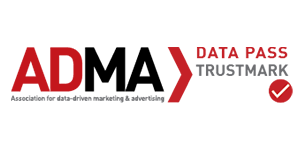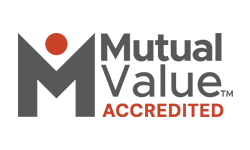Identity fraud is often a two-stage process where your personal details are stolen and then used for financial gain or other criminal activity. It can occur in many ways – from someone using your credit card illegally to make purchases to having your entire identity assumed by another person to open bank accounts, take out loans or conduct illegal business under your name.
Having your identity stolen can be both financially and emotionally devastating. It’s crucial to keep your personal information secure. Details that are commonly sought after include driver’s licences, passports, Medicare card information, and bank account details.
How to protect yourself
- Always keep your personal information safe
- Protect your passwords and change them regularly to make it harder for someone to discover them
- Always hide your PIN at ATMs and EFTPOS terminals
- Turn on Two Factor Authentication (2FA) on all services, particularly your email and social media
- Check your bank statements regularly
- Keep statements, receipts, tax returns and other documents showing your personal financial information safe. If you throw them away, shred them first
- Don’t give out your date of birth on social media sites, and keep profiles on a private setting
- If you’ve moved house, be sure to update your details immediately, so your mail is sent to the correct address and always have up-to-date contact information, so we can reach you if we notice any suspicious or unusual activity
- Install anti-virus software on your computer and scan it regularly
- Never give personal information to a person or organisation unless you know them, trust them and know why they need it
- Obtain a copy of your personal credit file to make sure there is no unusual activity. You can request this once a year from credit reporting agencies such as Equifax and Illion for free.
What to do if your identity has been stolen
If you think your identity has been stolen, you should urgently report it to the police. Ask the police for a police reference number and get a copy of the police report. You should also contact us immediately and we recommend contacting all of the financial institutions you bank with, so they are aware of the situation. A timely response can be critical in giving you the best chance to stem any loss.
- Contact us immediately (How to report fraud or scams)
- Change your online banking passwords and card PIN
- Contact IDCARE on 1800 595 160. IDCARE is a free, government-funded service that provides support to victims of identity crime
- Report fraud via the Australian Cyber Security Centre
Lock your card
- Log into our Mobile App and select "Cards" from the Menu and select "Lock Card"
Report lost, stolen or captured card
- Please contact us immediately if your G&C Mutual Bank credit or debit card is lost, stolen or captured. Call us on 1300 364 400, 24 hours a day, 7 days a week.
- For overseas assistance, call us on +61 2 9307 5400 or contact Visa Global Customer Assistance +1 303 967 1090 (international) or the VISA International Hotline specific to the country you are in.
- Email us with the subject: URGENT lost or stolen card
- Contact us before you travel overseas so we can monitor your account more closely. You will also avoid transactions on your cards being stopped by us when we detect overseas purchases. We will need to know your departure date, return date, destination and contact details while you’re away.
- Alternatively, you can complete the Overseas Travel Form within our Mobile App.
- Read more about staying financially safe overseas to ensure your travels are memorable for all the right reasons.







